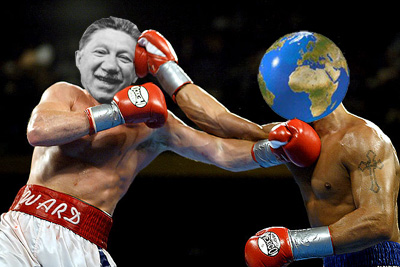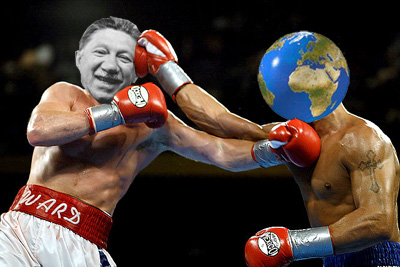Maslow versus the world: Self-actualisation and peak experiences through something outside of ourselves
Maslow talks about notions of self-actualisation and peak experiences that seem in direct opposition to what people experience in their day jobs. Research shows a way to resolve this conflict is to turn your job into a cause. What does this mean for organisations looking to either become that cause or help their teams create the cause themselves?

What do we “need”?
You may have heard of Maslow from his hierarchy of needs, in which he outlined five linear stages of motivation to address physiological, security, belonging, esteem, and self-actualisation needs. Subsequent research has indicated that the five levels are not always present, may be different based on culture, and are not always dependent upon the previous need being satisfied. What research does agree on is that there exist higher levels of motivation that other forms of motivation seem unable to satisfy.
My recent post on Daniel Pink’s book Drive outlined the premise that an exclusive focus on lower-level financial needs has limited results in complex environments. Financial “carrots” are not necessarily effective when used as motivators for high-performing teams. Yet despite the research, simple financial rewards and punishments seem wired into the DNA of the commercial organisation.
I find myself asking questions some may deem as inane coming from a manager of a successful digital firm. I find myself wondering if there is anything beyond selling more products or services, if there is meaning behind the change, and what the definition is of our “so that” to which we apply ourselves. These questions are recurring in my studies and blog posts as I try to understand what makes a “Firm of Endearment”.
Something outside of ourselves
My ponderings turn the question back on myself “Yes, Chad, but what does it look like?” Are such questions merely a result of excessive inward focus? Authors such as Frankl, Seligman, and Czikszentmihalyi respond in the negative, finding that “self-actualisation” is in fact opposite to “self-centeredness”.
Maslow explains it below:
“Self-actualizing people are, without one single exception, involved in a cause outside their own skin, in something outside of themselves. They are devoted, working at something, something which is very precious to them – some calling or vocation in the old sense, the priestly sense. They are working at something which fate has called them to somehow and which they work at and which they love, so that the work-joy dichotomy in them disappears.”
This gives insight into the failure of rewards and punishment that focus on “what’s in it for me”. There appears to exist in each of us a deep need to fully expend ourselves for something outside of ourselves. From birth onwards, this need is buried under society’s false pretence of individualism, personal success and hero-worship. This last point is a paradox, in that we worship and financially elevate artists and executives who themselves portray heroes who sacrifice themselves and trigger in us a desire to be someone more than we are.
Indicators of the peak experience
Maslow’s later work brought clarity to what self-actualisation looks like. He used the concept of “peak experience” to explain moments when this need is fully satisfied. Maslow documented descriptions below of those having such an experience:
- You get the big picture, seeing the universe with clarity as an integrated and unified whole
- Your concentration is incredibly focused well beyond what is normal
- You perceive objects, people, and things as more detached from human concerns
- Your perception becomes unselfish and less ego-focused
- Your get validation and intrinsic value from your experiences, resulting in a satisfaction with the journey rather than only having false satisfaction with the end
- You become less conscious of time and space concerns
- You see the world as beautiful, good, desirable, and worthwhile rather than evil or undesirable. The world is accepted and understood. You do not blame or condemn, everything is seen as good, just, and inevitable, with evil seen as a product of a limited or selfish vision and understanding, resulting in pity, charity, kindliness, sadness, and amusement.
- You have an alignment of values with others having similar experiences.
- You become more receptive, humble, ready to listen and teachable.
- You experience emotions of wonder, awe, reverence, humility, and surrender which result in an eagerness of inevitable outcomes.
- You resolve conflicts with a shift towards unity, fusion and integration and away from splitting and opposition
- You experience a loss of fear, anxiety, defence, perplexity and confusion and need for control.
- Your experiences impact your immediate and long-term thinking.
- You have the ability to “step into” the experience.
- You feel responsible, active, and centred.
- Your feeling of acceptance results in spontaneity, honesty, and innocence.
- You become less of an object and more of a person.
- You manage expectations based on a lack of needing for self and more an acceptance of what is.
- You have greater feelings of gratitude, feeling fortunate for what you have.
- You have pride fused with humility (without resulting in hubris) and humility fused with pride (without resulting in masochism).
- You have a sense of a better way viewed through aspects of the everyday
What would you choose?
What words would you use to describe how you feel in your average work day? How would you describe the people you work with? Could you use the twenty-one line items above?
Concepts such as “self actualisation” and “peak experience” seem utopian and out of touch with commercial reality. And yet if most people had a choice, I have a hard time thinking they would not choose to be in control, teachable, responsible, grateful, and other sentiments often absent from our daily work life. The answer to this conflict appears to be engaging fully in a cause outside of ourselves.
The more I research and the more I observe personal and societal negative impacts of the commercial profit mandate, the more convinced I become that it is the organisation’s responsibility to help their respective teams find that cause relative to the individual, with a real option of the organisation itself transforming to become that cause.


I think perhaps you need a follow-up. How does one begin this process? How does one know where they are in terms of “self-actualisation”? etc.
Excellent article…